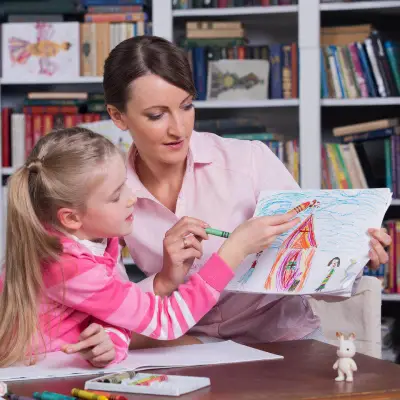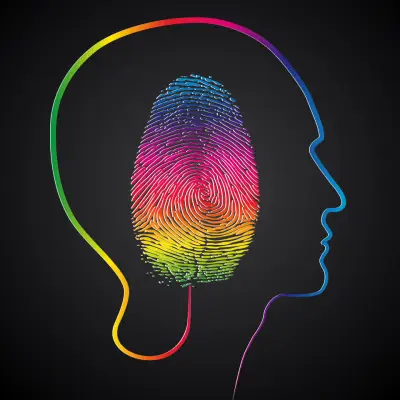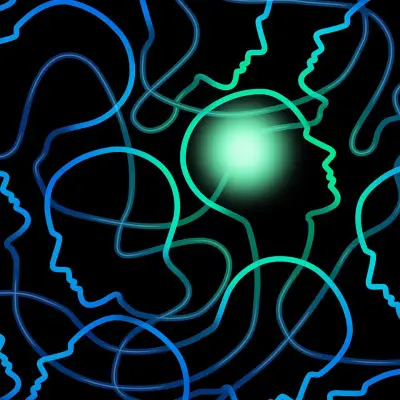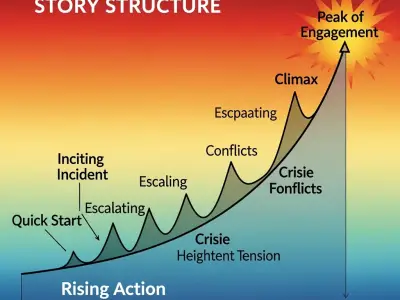In our Psychology Overview 101 blog, we explored the broad subject of psychology. As part of our ongoing series on the major subfields of psychology, we now turn to Educational psychology.
Jump to:

What is Educational Psychology?
Educational psychology is the study of how humans learn and retain knowledge. It applies psychological theories and concepts to educational settings and practices, like schools and universities. It examines cognitive, social, emotional, and biological factors that come into play when students learn and develop. By understanding these factors, educational psychologists can provide insight into how to improve teaching practices, student evaluations and general curriculum design.
The 5 Key Theories of Learning
There are many theories within Educational psychology, but there are five major ones that experts tend to focus on. These include behaviourism, constructivism, social learning theory, cognitive learning theory, and connectionism.
Behaviourism
According to behaviourist theory, learning is a result of environmental stimuli and reinforcement. Behaviourists believe that learning occurs through interaction between stimuli and responses. Key concepts include conditioning, reinforcement and punishment. Classical Conditioning is one type of conditioning that was studied by Russian physiologist Ivan Pavlov. This type involves pairing a naturally-occurring stimulus with a previously neutral stimulus to elicit a desired response. For example, one of his famous studies was with dogs. He would ring a bell every time they were fed. Eventually, the dogs associated the bell (stimulus) with food (positive stimulus). The dogs would also start to salivate as soon as they heard the assistant bringing the food (conditioned response).
However, psychologist B.F Skinner thought that just linking stimuli with responses wasn't enough to explain human behaviours. Instead, he believed that we should look at the causes of actions and their consequences, so he studied Operant Conditioning. This uses reinforcement or punishment to increase or decrease a behaviour. One of his most famous experiments is “the rat in the box”. A rat was placed in a box with a small lever, every time the rat accidentally knocked the lever, a small amount of food would drop into the box. Eventually, the rat learned that it should intentionally knock the lever if he wanted food. This is called positive reinforcement. B.F. Skinner also looked into negative reinforcement. This time he placed the rat into a box and subjected it to discomfort through small electric shocks. When the rat knocked into the lever, it would switch off the electric current. He repeated the experiment multiple times by putting the same rat into the box, eventually, the rat learned that in order to escape the electric current, it should immediately press the lever to switch it off.
Constructivism
Constructivism views learning as an active process where students construct new ideas and concepts based on prior knowledge and experiences. For example, it suggests that learning is affected by students' background knowledge, culture, motivation, and social interactions. Contrary to behaviourism - which focuses on external stimuli - constructivism emphasises deeper understanding rather than just memorisation. Jean Piaget and Lev Vygotsky were theorists who studied this behaviour. Piaget believed that growing children go through different stages of thinking. They use what they already know to understand new things (assimilation) and change their ideas when needed (accommodation). On the other hand, Vygotsky stressed how talking and playing with others (and the culture they're in) helps kids to learn. He talked about the "zone of proximal development" (ZPD), which is what a child can do with help, and "scaffolding," which means giving just enough help for kids to learn on their own.
Social Learning Theory
Social Learning Theory was proposed by the psychologist Albert Bandura and integrates cognitive and behavioural principles to explain how individuals learn from observing others. According to this theory, learning can occur through direct experience as well as through observation and imitation of others' behaviours. Bandura introduced the concept of modelling, where individuals learn by observing the actions and consequences of others, particularly through influential figures such as parents and teachers. There is also an emphasis on the role of cognitive processes like attention, retention, reproduction and motivation. For learning to occur, individuals must pay attention to the model, retain information in memory, replicate the behaviour, and be motivated to adopt the behaviour.
Cognitive Learning Theory
Jean Piaget also studied cognitive learning theory. This theory focuses on memory, attention, and problem-solving as being central to understanding how learning occurs in humans. There are five main concepts within this theory; they are schema, assimilation, accommodation, metacognition and information processing.
- Schema refers to cognitive structures that organise information and past experiences. We use schema to interpret new experiences and information.
- Assimilation describes how humans incorporate new information into existing schema. Information that aligns with schema is more easily learned.
- Accommodation involves altering existing schema in response to experiences that contradict prior knowledge - this leads to new learning and modified schema.
- Metacognition refers to awareness and control of one's own cognitive processes. Strategies like planning, monitoring comprehension, and evaluating progress are metacognitive skills.
- Finally, information processing is where humans process information through sensory memory, working memory and long-term memory.
Connectionism
Connectionism proposes that learning occurs through the strengthening and weakening of connections between neurons. In simple terms, when we learn something new, the connections between the related neurons get stronger and connections that are not used get weaker. Connectionist models consist of nodes (representing neurons) that are organised into layers, including input, hidden, and output layers. Signals are transmitted between these neuron nodes along adjustable, weighted connections. Over time, the connection weights change to strengthen the pathways that lead to correct results and weaken the incorrect pathways. This allows the network to learn associations between inputs and outputs, similar to how neural networks in the brain learn from experience.
Recommended for you!
Best SellersDevelopmental Psychology in Education
Developmental psychology looks to explain how thinking, feeling, and behaviours change throughout a person's life. In education, understanding these development theories is important so that teaching practices can be tailored to the student’s needs and abilities as they grow.
Piaget's Theory of Cognitive Development
As we touched on earlier, Jean Piaget proposed a theory suggesting that children progress through distinct stages of cognitive development as they interact with the world around them. According to him, these stages include the sensorimotor stage, preoperational stage, concrete operational stage, and formal operational stage. Each stage is characterised by specific ways of thinking and understanding the world. This theory highlights the importance of providing developmentally appropriate learning experiences that align with students' cognitive abilities.
Erikson's Stages of Psychosocial Development
Erik Erikson’s psychosocial theory emphasises the social and emotional aspects of development. He proposed a series of 8 psychosocial stages - each associated with a particular challenge or conflict - that individuals must navigate to achieve healthy development. The stages range from infancy to late adulthood and include issues such as trust vs. mistrust, autonomy vs. shame and doubt, identity vs. role confusion, and generativity vs. stagnation. When it comes to education, the theory stresses the importance of creating positive relationships and a sense of autonomy in students. Teachers can create supportive environments that encourage exploration and autonomy, helping to grow the students’ psychosocial well being.
Vygotsky's Sociocultural Theory
Lev Vygotsky's sociocultural theory emphasises how cognitive development is influenced by cultural context, language and social interactions. According to him, learning happens within a social context through interactions with those who have more knowledge, like parents or teachers. He introduced concepts such as the zone of proximal development (ZPD) and scaffolding to describe the dynamic interplay between learners and their social environment. In education, the theory mentions just how important collaborative learning is, along with interactions with peers and students who are also learning.
Kohlberg's Stages of Moral Development
Lawrence Kohlberg proposed a theory of moral development, suggesting that individuals progress through a series of stages in their understanding of moral principles and ethical reasoning. He identified three levels of moral development, each of which has two stages; pre-conventional morality, conventional morality, and post-conventional morality. Kohlberg believed that, as people grow up, they start thinking about right and wrong differently. At first, they might only care about themselves and doing what authority figures say. But as they get older, they start thinking more about fairness and what's right for everyone, not just themselves.
Gardner's Theory of Multiple Intelligences
Howard Gardner is a Harvard psychologist who proposed the concept of multiple intelligences. This proposes that intelligence isn’t just about being good at maths or excelling in IQ tests. Instead, it can manifest as being great at music or sport or being able to understand people really well. His theory encourages teachers and mentors to structure their lessons in such a way that they appeal to different intelligences and give students space to demonstrate their abilities (i.e. by not adopting a “one approach fits all” way of teaching).
If you’re a mentor or teacher who’s looking to further understand the theories of learning and development that we’ve covered in this article, consider enrolling on our accredited Educational Psychology Diploma course for just £29 (save £98!). This course goes further into all these theories, along with offering practical examples and strategies for application in the classroom. Using the knowledge that’s provided in the course, you’ll be able to create improved lesson plans that will encourage and aid your students' learning and improve your own ability to fulfil your role. It also offers an excellent opportunity for professional development for teachers who are seeking to maximise their students’ potential.












